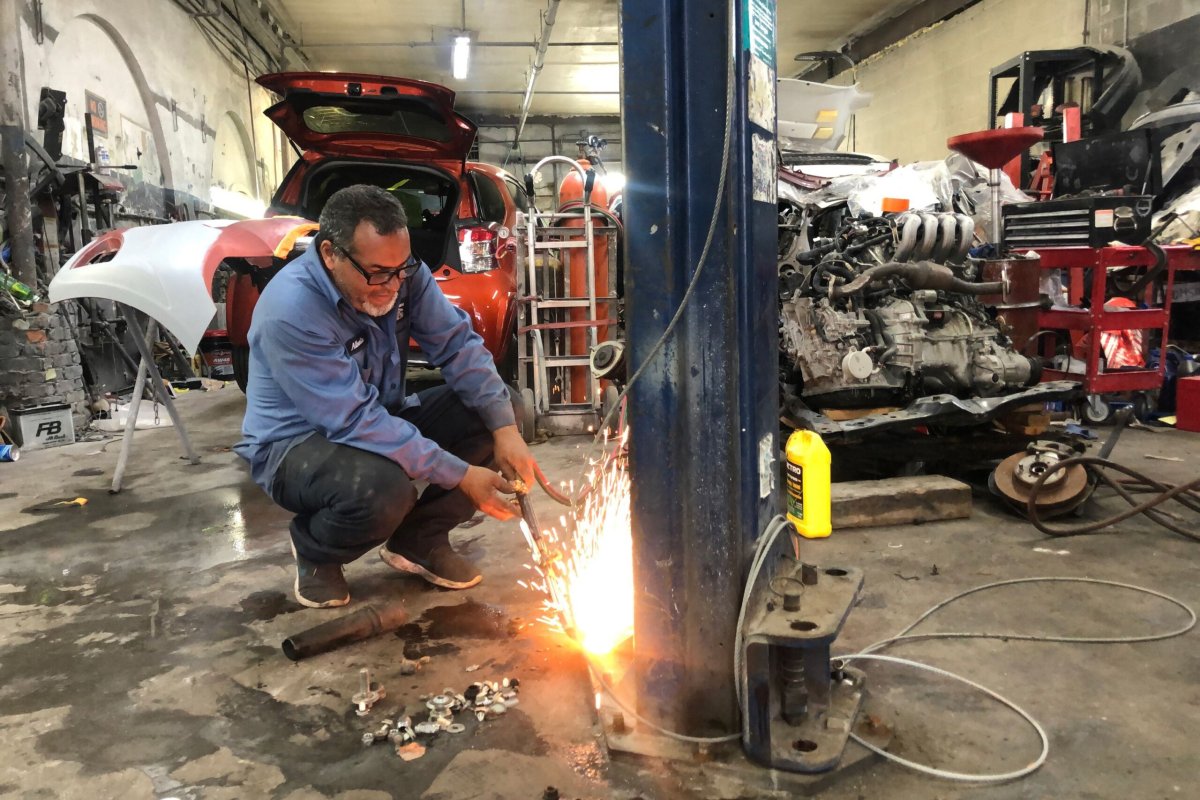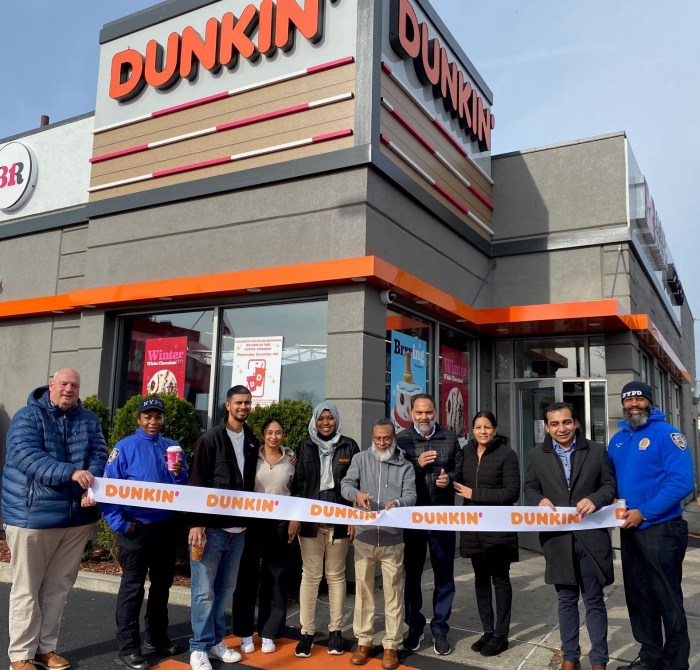This article was originally published on by THE CITY
/cdn.vox-cdn.com/uploads/chorus_asset/file/24898607/083123_ridgewood_superfund_1.jpg)
Andy Bermeo, owner of an auto repair shop in Ridgewood, Queens, was not supposed to be at work on Tuesday.
But there was Bermeo, clad in a blue Superman t-shirt, flitting around his auto shop, taking phone calls and tending to customers. A green parrot named Peanut squawked in a cage outside.
As per a court order, Bermeo was supposed to have left by Aug. 31.
In 2014, the Environmental Protection Agency designated the triangular patch of land formerly occupied by the Wolff-Alport Chemical Company as a Superfund site. But before the EPA could clean it up, the businesses there had to leave.
By the start of this month, a deli and another auto repair shop, around the corner, had closed. But Bermeo, who spent the weekend packing up, was “the last one standing,” he said.
“A couple of customers had appointments from before. I’ll try to knock them out and get out,” he said, adding that he hoped to stay until the week’s end, when his new location in Greenpoint, Brooklyn, would be ready.
Bermeo’s impending move-out marks the end of the chapter for businesses that operated on the site for decades, and a step closer towards the area’s remediation.
Health Hazard
For more than 30 years the Wolff-Alport Chemical Company processed monazite sand at its Ridgewood facility. The mineral, which can be mined to separate out rare-earth metals for future use, contains radioactive materials, some of which it sold to the federal government for atomic bomb research. The company disposed of its waste in the sewer system and around its Ridgewood property until 1947, when the feds told the company to cease its dumping. The company closed in 1954.
Testing in the late 1980s revealed radiological contamination at the site, in both the soil and the building materials. Later surveys found radiation levels that could pose a hazard to health, leading the EPA to install some radiation shielding and other mitigation systems.
In 2014, the area became a federal Superfund site, with the EPA spearheading the cleanup effort.
/cdn.vox-cdn.com/uploads/chorus_asset/file/24898611/081623_bushwick_superfund_1.jpg)
The EPA developed a clean-up plan in 2017 that would involve moving commercial tenants, knocking down buildings, removing the contaminated soil and cleaning the sewer system. It secured funding in 2020 to relocate local businesses, according to EPA remedial project manager Tom Mongelli.
“Since then, it’s been sort of a periodic check-in with the tenants, making sure that they know that they need to leave, making sure that they’re filling out their paperwork, submitting any documentation that’s necessary,” Mongelli said.
By 2021, the EPA issued an administrative order with a 2022 deadline for the businesses to leave.
Two businesses — a tire shop and an appliance store — moved out in the last year, but three remained.
In January, the U.S. Department of Justice filed a complaint against the remaining three, and a federal judge ordered them out by Aug. 31.
In mid-August, Bermeo was defiant. He hadn’t started packing, though he had started scouting other locations for his shop.
“Everybody has families and we have to eat every day. If there’s something in the ground, so be it,” he said. “We’ve been here for a little while now and nothing’s happened.”
Bermeo was unhappy with the EPA’s offer to reimburse him for costs related to moving and reestablishing his business, or give him a one-time payment of $40,000, which he said was not enough. He also didn’t believe the agency would come through with the money.
A week later, in an Aug. 31 interview with THE CITY, Bermeo was resigned to his fate and had chosen to take the one-time payment.
“I gotta be moving out. I got no choice, do I?” he said. “It sucks, but it is what it is.”
/cdn.vox-cdn.com/uploads/chorus_asset/file/24898609/090523_ridgewood_superfund_2.jpg)
Down the block, another business owner, Alberto Rodriguez, was breaking down his equipment at Los Primos Auto Repair and Sale, which he ran from the site for half his life.
“I don’t have a place to go. I was looking for places and I didn’t find any place to go,” Rodriguez said. “I’m stressed. Twenty-seven years in the business and I won’t have a business if everything’s shut. I’m crazy right now. I got my hands tied.”
Rodriguez said he was always concerned about how the radiation might affect him and his employees. In recent weeks, his worries about the future of his business had been disrupting his sleep, his wife said.
Clean-up Efforts
When the EPA makes certain all the businesses are gone for good, a contractor will prepare for demolition of the buildings by clearing out any leftover equipment and removing overgrown plants. Mongelli estimated the work may begin as early as October, with demolition taking place early next year.
Mongelli said if the businesses had vacated the site in 2022, as the administrative order directed, the EPA could have begun demolition as early as last year.
“Be that as it may, we’re here now, and we’re excited to finally get the ball rolling on it,” he said.
The full $40 million remediation for the site isn’t estimated to be completed for several years. New York City owns the sidewalks, streets and sewers and will pay $1.6 million for the clean-up work.
When that’s done, the EPA will give back the clean land to property owners, who can then develop those parcels in accordance with zoning laws.
The clean-up efforts will protect workers who might toil on the site in the future.
The contamination “is a long-term health concern for people who are living or working in those buildings, and then it would continue to be, essentially forever,” Mongelli said. “Without removing the building structures, without digging up the soil and disposing of it somewhere that can handle that material, this contamination would not go away over time.”
THE CITY is an independent, nonprofit news outlet dedicated to hard-hitting reporting that serves the people of New York.




































